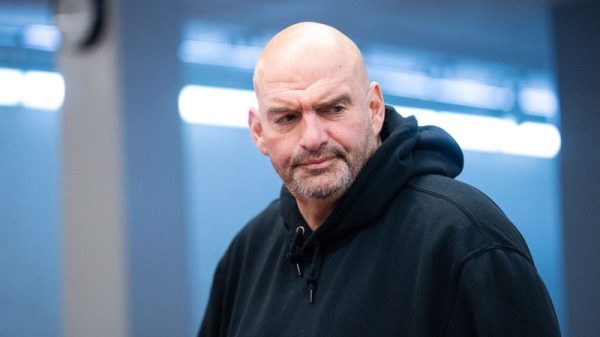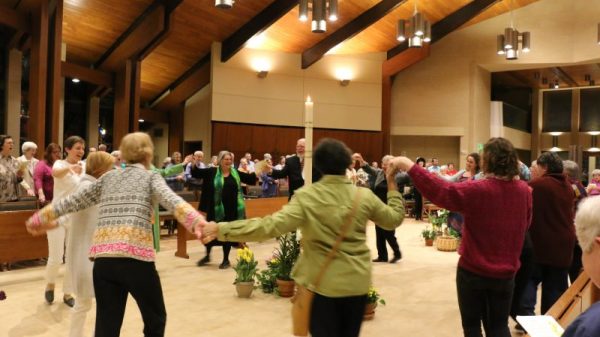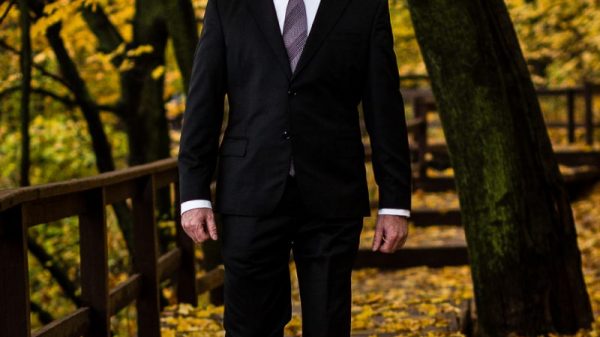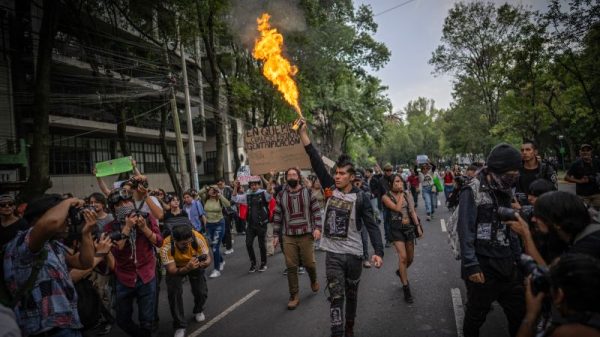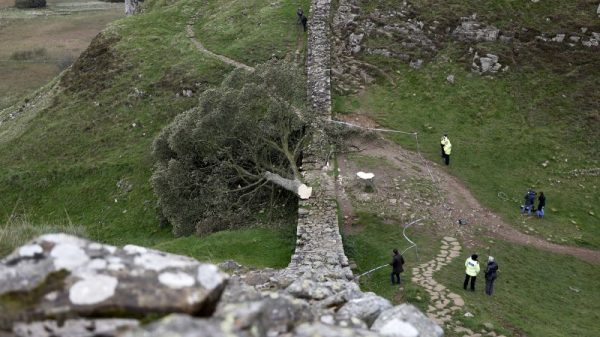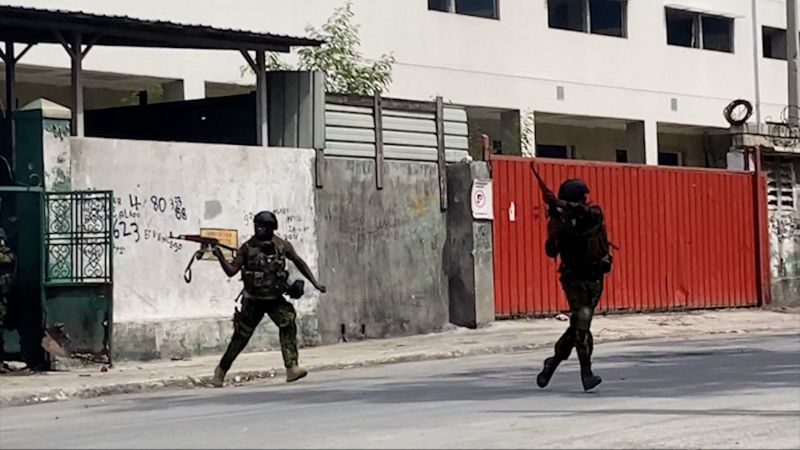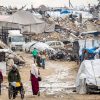Parts of Port-au-Prince are showing signs of life again: On the once-desolate Boulevard Toussaint Louverture, a young couple could be seen hugging one recent afternoon. Down the street, a group of men danced as Bob Marley’s “One Love” came on the radio.
A few months ago, walking down this main artery in Haiti’s capital was inconceivable; a loose alliance of gangs was rampaging, kidnapping civilians, blocking shipments of food and water, and battling the Haitian National Police block by block. Since the arrival in late June of a foreign police force known as the Multinational Security Support (MSS) mission, criminal attacks here have slowed.
But in “red zones” across the city and beyond, a new war is just beginning, as gangs test the still-forming MSS. Haitians and the mission’s backers in Washington are watching closely for signs of weakness.
Rolling through downtown Port-au-Prince, the armored convoy came under intense fire in the dark. Inside one vehicle, the stifling metal cabin was quiet, except for the bullets rattling angrily at reinforced windows and doors. A Kenyan officer brushed it off as mere “rain” typical of a patrol in Port-au-Prince, but later took careful note of the close-range pocks and thick cracks left behind.
None of the troops returned fire; they could not – their vehicles had been delivered to Haiti without turrets from which to shoot. Making painfully slow three – and four, and five – point turns on the narrow street, the hulking fighting vehicles retreated under an echoing onslaught.
The next day, a Kenyan officer would become the mission’s first injury, struck in the arm as he attempted to shoot out of a half-open loading panel during a gang attack on a grain delivery truck.
Security experts panned the maneuver as unprofessional; Kenyan troops say it’s the only option with the equipment they currently have.
‘The arrival of the Kenyans has created expectations’
This mission was debated for years before it came into being.
Since at least 2022, Haiti’s neighbors have agonized openly over the spread of insurgent armed groups in the Caribbean nation. Responding with force became the only obvious option in March, when a series of coordinated gang attacks on government buildings and prisons forced the Haitian government to dissolve – threatening a state of anarchy just two hours from the Florida coast.
That’s how Garry Conille – a Haitian doctor, former regional director for the United Nations’ children’s agency, UNICEF, and self-described “non-political person” – ended up in charge of solving the crisis. Regional bloc CARICOM orchestrated the creation of a transitional governing council for Haiti, which in turn appointed Conille as interim prime minister in May.
In a rare interview, Conille summarized the situation with the ready statistics of a career humanitarian: Over 85% of the Port-au-Prince metropolitan area is under gang control; around 600,000 people have been forced to flee their homes; some 2 million people live in fear of being raped or killed in their households, he estimated.
In other words, the MSS mission has no time to lose.
“People are living in under very bad circumstances. So, they want to see action. They want to see movement,” Conille said.
Public confidence in the mission’s ability to restore security is key to rebuild the Haitian state, says Conille, who works the phones “every single day” to expedite the delivery of hundreds of millions in funds and equipment pledged to the MSS by international donors. It needs to come faster, he says.
“The arrival of the Kenyans has created expectations, and we need to meet this expectation or the whole system crumbles, including the credibility of the transitional government,” he explained as we walked through piles of trash, abandoned prosthetics, and wrecked electrical generators.
“The concern is: Will we get the amount of resources we need so that this force can be deployed as quickly as possible, and that we can see in the next few weeks and months?” said Conille.
“My anticipation is that political interests will begin to use the sentiment of inertia or the lack of movement to mobilize frustration of population and destabilize what is still a very fragile consensus.”
Inside the MSS base
The creation of the MSS base is itself was an achievement. In just months, empty lots next to Port-au-Prince’s Toussaint Louverture International Airport have transformed from a battle zone to a bustling little town of men in camouflage.
Private security guards arrived first, camping under the wings of old aircraft as they secured the area. Then a wave of private contractors were brought in, working around the clock to build access roads and helipads, a gleaming mess hall, expansive field hospital, long domed tents for offices and barracks, and even a laundry room, where laminated signs warn against throwing body armor in the dryer.
A monumental reminder of the rush with which it all came together, a passenger jet from the now-defunct Planet Airways still sits rusting onsite – there was no time to move it before the first deployment of Kenyans arrived.
Four hundred Kenyan police live here, many of them selected from special units and border police. They are the vanguard of a force that could soon grow to 2,500 strong, with more troops expected from Jamaica, Benin, Chad, the Bahamas, Bangladesh, Barbados and Belize.
This mission is designed to break the mold; unlike previous peacekeeping missions in Haiti, the MSS is independent of the United Nations. Largely funded by the United States, along with France and Canada, it will consist mostly of police rather than militaries, and is mandated to bolster Haitian National Police operations rather than sideline them – hence the word “support” in the mission’s official name (though locals refer to the MSS as simply “the Kenyans.”)
Kenyan police are no strangers to allegations of human rights abuses, but they’re putting in guardrails to avoid the scandals of previous missions in Haiti, including allegations of sexual exploitation and the 2010 introduction of cholera by UN peacekeepers. On a tour of the base, Otunge highlighted its sanitation system and handwashing facilities. Troops are not allowed to leave the base during off-hours.
With the mission still in “phase one” of its deployment, Otunge says it’s a good sign that his men are already able to perform patrols to establish a public presence, while waiting to reach full strength.
“Once we now reach the full operational capability of the mission, there will be nothing to worry about in the issue of gangs in this country,” he says.
Otunge’s confidence is infectious. No wonder his officers pooh-pooh Haiti’s gangs as amateurs compared to their previous foes, like Al Shabaab – though the al Qaeda affiliate hasn’t been entirely vanquished back home in Kenya.
Managing expectations
Several expressed worry that the mission is already struggling to live up to expectations abroad, with viral videos by local journalists in Port-au-Prince showing Haitian and Kenyan police handling some engagements ham-handedly and shouting at each other in apparent frustration.
Tactical victories are hoped to help validate foreign governments’ commitments to the MSS, and even persuade more international partners to open their purses. According to a July 30 press conference by Normil, the police chief, over 100 alleged gang members have been “stopped” – an apparent euphemism for killed – in exchanges of fire with police and an additional 65 arrested in recent operations.
Still, those kinds of numbers barely begin to address the scale of crime and impunity in the Port-au-Prince area.
Last week, a gang raided a boarding school for deaf children, the Institut Monfort, in the western outskirts of the capital. The attack scattered the nuns who work there and 47 of their charges into the night, forcing them to shelter with other religious organizations across the city, according to Sister Lamercie Estinfort.
“The kids could not stop crying. The gang screamed at them and made them lie on the floor and threatened to shoot them if they didn’t stop crying, but our kids couldn’t understand anything that was happening. They are deaf.”
No one came to help, she said – not the police, and not the MSS forces. She and the children are now among the hundreds of thousands of Haitians made homeless by gang attacks.
The incident is one of several fueling fears that as the MSS settles into Port-au-Prince, criminal groups are now shifting their focus to the city’s outskirts.
An MSS spokesperson said they were not called to respond to the incident, and Haitian National Police did not respond to request for comment.
Further west, in the town of Ganthier, a joint response last week by Haitian National Police and MSS forces to an assault by the gang 400 Mawozo was touted as a victory, but has proven inconclusive, with the group still attacking in the area.
“I’m even waiting for orders myself, to hear the order: ‘It’s time to dismantle Barbeque. To dismantle Lanmo Sanjou. To dismantle Izo. To dismantle Chen Mechan,’” he said listing the nicknames of notorious Port-au-Prince gang bosses.
Breakfast with the US ambassador
Hankins promises that more equipment is on the way, but argues the MSS has already had a powerful psychological impact.
“When I arrived in Haiti four months ago, I had to come in by helicopter, because the gangs had attacked the airport. The city was essentially under siege. And there were realistic concerns that the security forces would collapse totally, and that we might by now have a de facto President Barbecue,” Hankins says, referring to one of the most outspoken gang leaders in the city.
“So, if you move forward four months, huge political progress, huge security progress. A lot of challenges ahead and certainly no guarantees of the future. But we’re just in a much better place than when I arrived.”
And it’s not just about what the Haitian public and funders think, he says. In addition to material support, the symbolism of the MSS and its gleaming base also sends an important message to Haiti’s police that the world is with them. And that could make a difference in their operations, Hankins suggests.
“As soon as you get confidence and at least some equipment for the security forces, the gangs tend to back off … half the gang members are kids. They don’t have military training.”
The list of what remains to be done is long and complicated. The mission aims to establish forward operating bases, including in the volatile Artibonite region, an agricultural powerhouse in central Haiti, to eventually defend territory seized from the gangs. The Haitian Justice Department is looking into possible mobile courts to speedily process arrested gang members, in a country where many prisoners have never seen a judge.
Prisons must be built – there isn’t space to put all the gang members that the MSS hopes to arrest. And the country’s child protection agency IBESR and UNICEF just signed a protocol for handling children affiliated with armed groups, who are estimated by the Haitian government to make up 30% to 50% of the gangs’ ranks.
But first, MSS troops say they need the basics – like turrets for their vehicles.
As Haiti becomes once again a laboratory for international intervention, its gangs are waiting and watching. Some have called for dialogue, offering a potential avenue toward a negotiated peace, which Conille has not ruled out. Others have already thrown down the gauntlet, posting videos on social media of fresh weapons shipments smuggled into the country, and ceiling-high stacks of ammunition.











